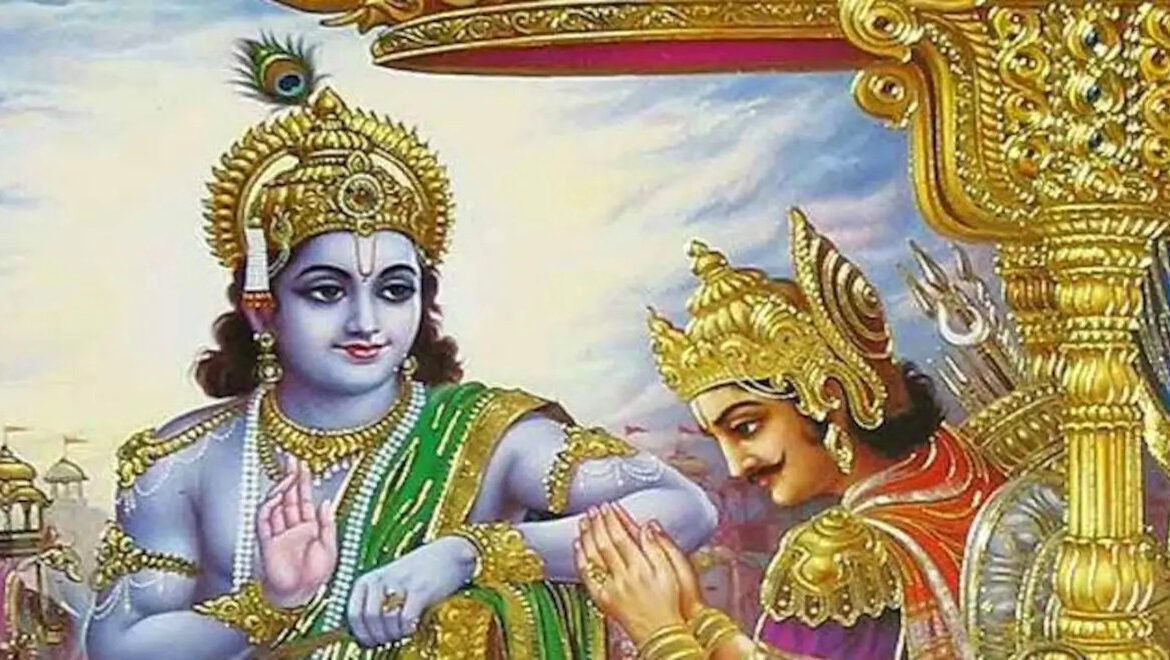Chapter 4 Vikarma : The key to karmayoga
The key to karmayoga
First,let us understand the word Vikarma.Vikarma is normally translated as wrong or forbidden action. Vinoba has given the term a different meaning. The prefix ‘vi’ has three different meanings : (1) opposite, as in viyog (2) different types, as in vijnana and (3) special, as in vidhwans. Vinoba says that one has to see the context while determining the meaning of any term. “It has been said in the 4th Chapter that one should understand karma, vikarma and akarma; only then one can grasp the meaning of the principle of karma. This means that it is an introductory remark; the 4th Chapter is going to explain them. But there is no mention of opposite karma (If vikarma is to mean opposite karma, such actions should have been mentioned there). Rather, different special actions (which aid the performance of swadharma) have been mentioned from verse 25 to 32.
But one need not entangle oneself in a debate over the meaning of words. If one takes vikarma to mean opposite karma, one should shun such karma and if one takes it to mean special mental actions which help in the performance of karmayoga, one should take up such actions. Then there will be no place for debate and the truth will be revealed to us.“
Karma needs vikarma to complement it:
Friends, in the last chapter, we discussed the yoga of desireless action. We also saw that we should never give up swadharma.
Desirelessness is a state of the mind.Pursuit of swadharma is necessary but not sufficient for acquiring that state. Other means must also be used towards this end. To light a lamp, oil and wick are necessary but not sufficient. It is also necessary to have a flame. Darkness disappears only when we light a flame. How to light a flame? For this one must purify one’s mind. The mind should be thoroughly cleansed through intense soul-searching. The Lord has given this important advice at the end of the Third Chapter. The Fourth Chapter has its genesis in this advice.
The Gita uses the word ‘karma’ (action) in the sense of swadharma. We eat, drink, sleep; these are all actions. But these are not the actions that the Gita refers to when it talks of karma. Karma refers to the performance of swadharma. Ex.Agriculture,trading,professions,carpentry,smithy etc.
The actions necessary for the purification of mind are called ‘vikarma’ by the Gita.Desireless, selfless karmayoga is attained only when outward actions are complemented with the inward action of the purification of mind.
Karma + Vikarma = Akarma
Desirelessness is gradually developed when karma and vikarma come together. When the flame accompanies oil and the wick,that results in light.
Action( Karma) is that which can kindle the fire of knowledge. When you ignite a log of wood, it turns into embers.When vikarma is united with karma, akarma results. What does it mean? It means that one does not then have the feeling of having done anything. When vikarma is poured into karma, it results in akarma. It is as if karma gets erased after it is over.
How does karma become akarma? From whom can we learn this art? From the saints, of course.Akarma can never be understood unless the lives of saints are observed closely.
Every year, tens of thousands of books are published in English and all other languages.There is the internet too. With such spread of knowledge, how is it that man behaves so stupidly? Some say that the power of memory has weakened, some say that concentration is becoming difficult, some say that there is no time left for thinking! The Lord says to Arjuna, “Yoga will be far away so long as your intellect, confused by listening to different things, remains unsteady. So stop reading books and listening to others and surrender yourself to the saints. There you would read the book of life.”
There is no simpler way than this,for common people like us!

